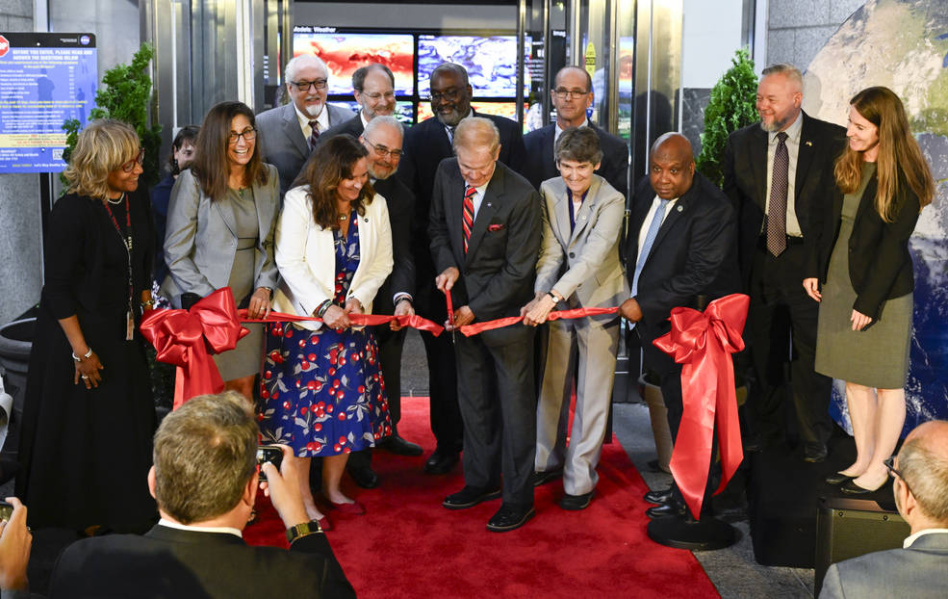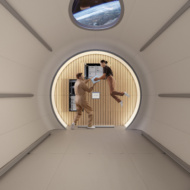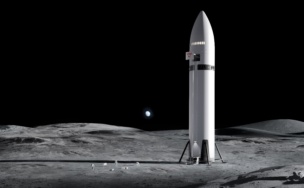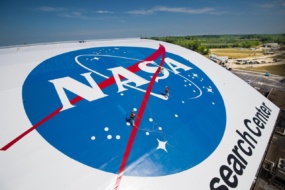The Biden administration hosted a pair of events last week showcasing two of its top priorities for space: fighting climate change and promoting diversity in the industry.
A warming climate: On Wednesday morning, NASA hosted a ribbon cutting for its Earth Information Center, an interactive exhibit at the space agency’s HQ in DC that’s been in the works for about a year, according to an agency spokeswoman.
“The Biden-Harris administration has given us marching orders that the data ought to be more understandable, to be more accessible, to be more usable for everyone,” NASA Administrator Bill Nelson said. “Today, we are opening this Earth Information Center, but it’s only the beginning.”
The highlights: The center, which is intended for tourists and school groups to visit, includes a video wall of real-time EO data, an interactive presentation that highlights the vulnerability of Earth and unity of humankind, and an “Earth pulse” feature that uses lights to represent the data being sent to and from NASA satellites in real time.
Black Space Week: Later on Wednesday, the National Space Council hosted an event to celebrate Black Space Week with a high-profile guest list that included astronaut Mae Jemison, who as the first African-American woman to go to space, and Linda Thomas-Greenfield, the US ambassador to the United Nations, who talked about how space can help address a number of problems on Earth.
“Let’s just start with one of my pet projects at the United Nations and that is dealing with issues of food insecurity and how we address the rising levels of hunger, how we address famine in south Sudan, how do we help the women farmers of Ghana know where to put their fertilizers,” she said. “That information can be facilitated by what we do in space.”
Africa’s space legacy: Jemison and Thomas-Greenfield also both highlighted Africa’s long history of involvement in the space program, including hosting a runway in The Gambia for space shuttle landings in case of an abort during launch.
“We don’t recognize…how much Africa and other developing countries were part of space exploration way before now,” Jemison said.
“Gumbo diplomacy”: The airport runway in The Gambia had to be extended and improved to be ready for the shuttle, a deal that Thomas-Greenfield said she helped negotiate while serving as a diplomat there.
“I worked with a lot of astronauts back in those days,” she said. “The NASA engineers who would come to visit…would always ask us what they should bring. And I always asked for celery because you couldn’t find it. It’s the one thing that if you’re a Louisiana cook you need, and they brought me a whole suitcase of celery, like 30 heads of celery, that I was able to share.”





